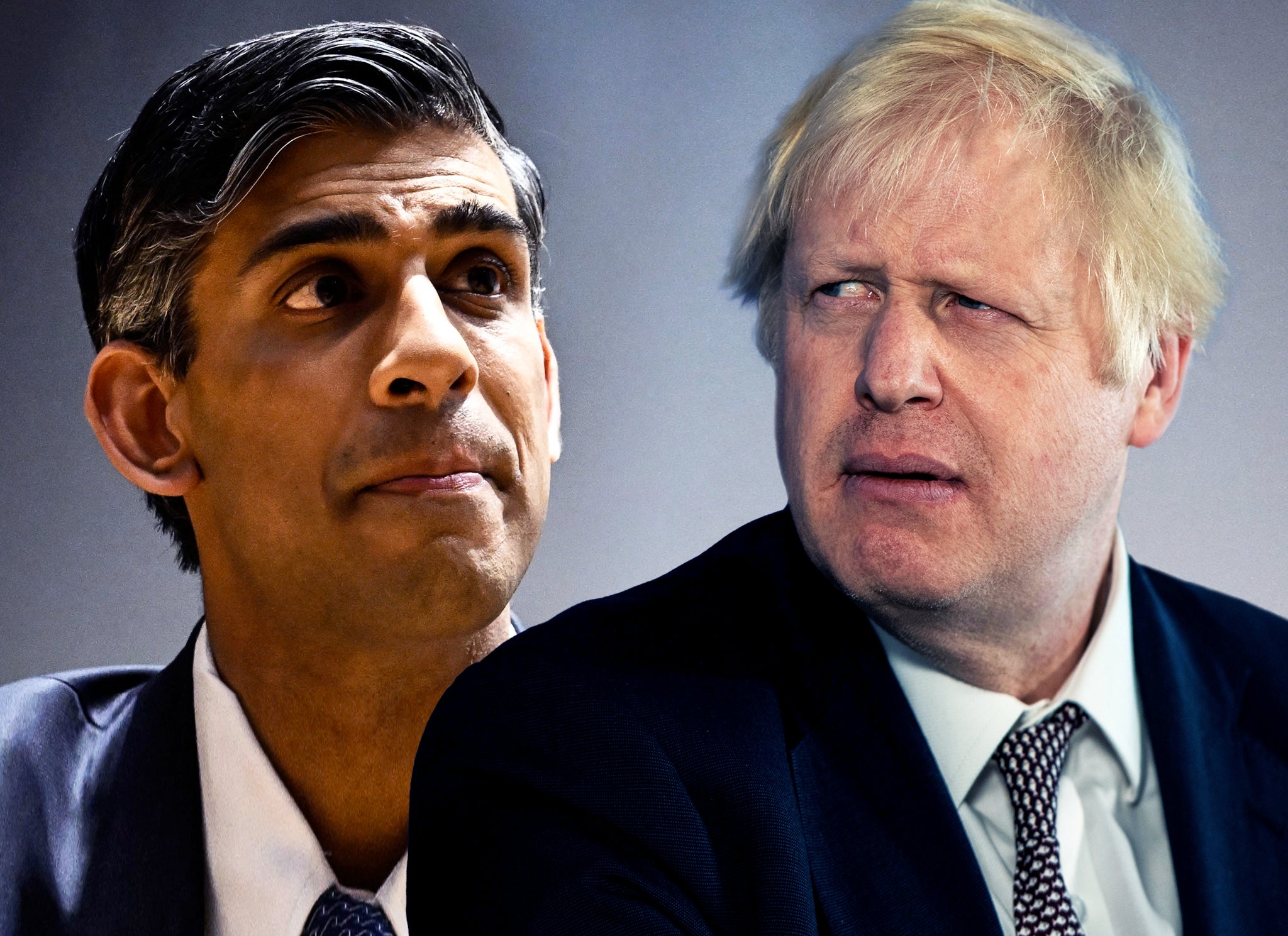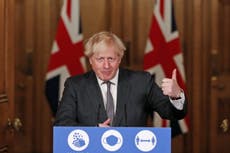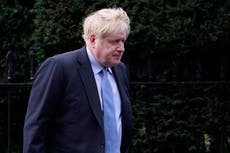Government WhatsApps about ‘frothy’ coffee orders, not major decisions, former health minister claims
The existence of three key group chats comes ahead of the first hearings of the official inquiry into the government’s handling of the pandemic

Your support helps us to tell the story
From reproductive rights to climate change to Big Tech, The Independent is on the ground when the story is developing. Whether it's investigating the financials of Elon Musk's pro-Trump PAC or producing our latest documentary, 'The A Word', which shines a light on the American women fighting for reproductive rights, we know how important it is to parse out the facts from the messaging.
At such a critical moment in US history, we need reporters on the ground. Your donation allows us to keep sending journalists to speak to both sides of the story.
The Independent is trusted by Americans across the entire political spectrum. And unlike many other quality news outlets, we choose not to lock Americans out of our reporting and analysis with paywalls. We believe quality journalism should be available to everyone, paid for by those who can afford it.
Your support makes all the difference.Government WhatsApp groups were used to discuss “frothy material” such as coffee orders and not to make major policy decisions, a former Tory health minister has claimed.
Lord Bethell, who was criticised for replacing his phone during the pandemic, meaning some of his own messages were lost, said it was “plain wrong” to suggest WhatsApp was used to make key decisions during the pandemic.
His comments came after it emerged the government set up numerous channels on the messaging app for figures including Boris Johnson, Matt Hancock and Dominic Cummings.
Other key players in the groups were Mr Johnson’s communications chief Lee Cain, chief medical officer Chris Whitty and chief scientific adviser Sir Patrick Vallance.
The existence of three key group chats comes ahead of the first hearings of the official inquiry into the government’s handling of the pandemic - expected to begin next week. They were revealed amid a furious row between inquiry chair Baroness Hallett and the Cabinet Office over the government’s refusal to hand over unredacted WhatsApp messages.
But Lord Bethell played down the importance of WhatsApp groups, insisting they were used to discuss topics such as “who needs to have what kind of coffee for what kind of meeting”. Lord Bethell insisted there is “no way” big decisions were taken via the app.
One group chat named “CSA/CMO/Matt/PM/Dom” was set up in March 2020 and contained seven members, The Times reported. It included then-prime minister Mr Johnson, health secretary Mr Hancock, Mr Cummings, Mr Cain, Sir Chris, Sir Patrick and now-cabinet secretary Simon Case.
A second group named “No 10/DHSC/Covid-19” was set up a month earlier with a wider membership of more than 30. And a third group was set up in August 2020 called “CMO/CSA/No 10/Taskforce”, containing Sir Chris, Sir Patrick, Mr Case, Mr Cummings, Mr Cain and Henry Cook, an adviser whose unredacted correspondence the Cabinet Office is also refusing to hand to the inquiry, according to The Times.
Lady Hallett is expected to rebuke the government on Tuesday for refusing to hand over the messages she has requested. The Cabinet Office is seeking a judicial review to determine whether it has to hand over materials ministers argue are “unambiguously irrelevant” to the inquiry.
Mr Johnson’s allies have claimed that Mr Sunak was refusing to hand over messages due to fears they could show plots against the former prime minister or embarrassing details about the ex-chancellor’s Eat Out to Help Out scheme.

But a source close to Mr Sunak told The Independent the claim was “total rubbish”, adding that the prime minister “barely uses WhatsApp”.
The former No 10 chief of staff Gavin Barwell told The Independent Mr Sunak was wrong to take legal action against the Covid inquiry because it had invited suspicion about the government’s true motives for protecting the messages.
“It’s not a great look for the government,” he said.
Lord Bethell told the BBC that WhatsApp groups he was included in were where "data from recent developments" was shared. Backing the government’s judicial review challenge, he said: "We need these tramlines, that’s why the court case is a good idea.
"The reality is that when you have several hundred thousand WhatsApps and you’re going through them one by one and trying to decide on the edge cases, whether or not they should be included, you end up having to surrender an enormous amount that I would typically term personal, but on a wide interpretation of the scope might be included, and therefore in order to achieve the greatest amount of candour you put in stuff that you wouldn’t reasonably be happy with."




Join our commenting forum
Join thought-provoking conversations, follow other Independent readers and see their replies
Comments